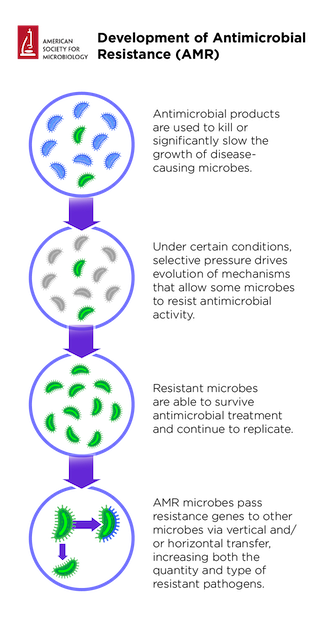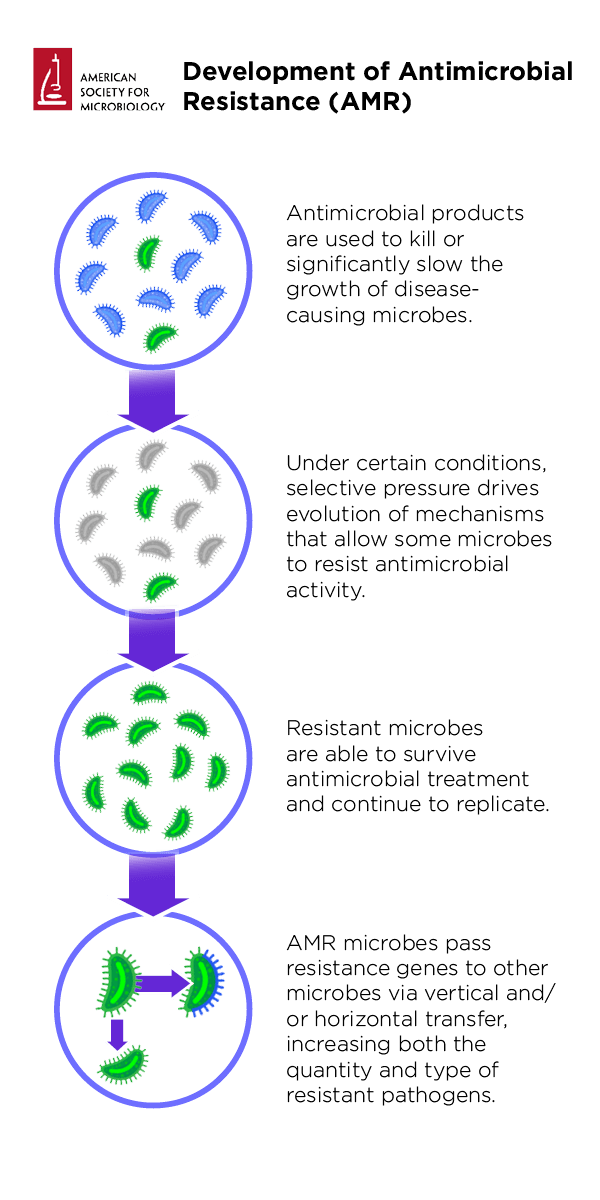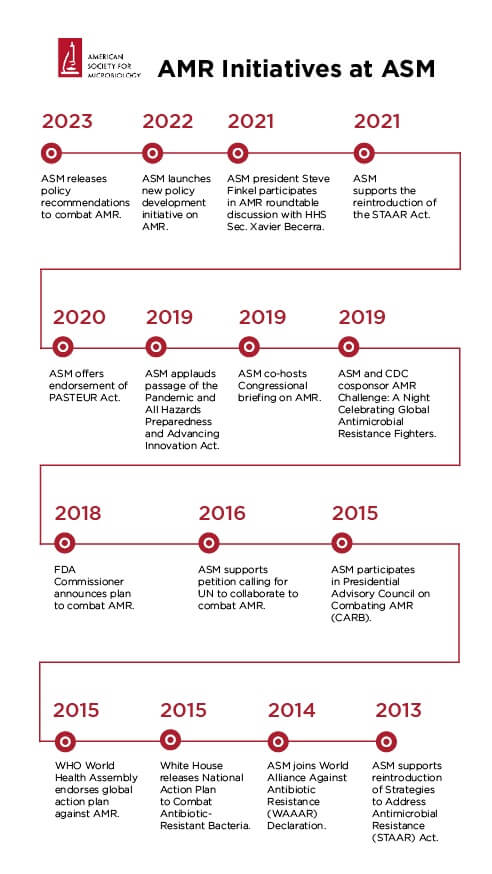

Source: American Society for Microbiology
Adaptation is a natural consequence of exposure to antimicrobials that makes antimicrobial resistance (decreased sensitivity to antimicrobial agents) inevitable and irreversible. The overuse of antimicrobial agents in medicine, production of food animals and crop protection have caused increasing resistance to those agents.
As existing antimicrobial agents decline in effectiveness, infections will be more difficult and expensive to treat and epidemics harder to control. The World Health Organization (WHO) projects the terrifying prospect of 10 million AMR-related deaths per year globally by 2050.
Key Causes of AMR:
- Over-prescription of antimicrobials.
- Shortened courses or incomplete compliance with antimicrobial treatment.
- Antimicrobial overuse in livestock and fish farming.
- Poor infection control in health care settings.
- Poor hygiene and sanitation.
- Limited discovery of new antimicrobials.
Laboratory Updates
Clinical breakpoints for antimicrobial susceptibility testing must change over time.
Policy to Combat AMR
ASM recommends steps for policymakers that prioritize science and the roles of microbiologists to combat AMR.
ASM Journals
Read the latest AMR research across ASM's 18 academic journals.
Understanding the Problem
Public Policy
Legislative Statements
The American Society for Microbiology actively works with federal and global partners to advance legislation to combat AMR and other health threats.
- ASM Policy Recommendations to Combat Antimicrobial Resistance.
- ASM Comments on CARB Working Group Meeting on Antibiotic Resistance.
- ASM Letter Concerning U.N. Meeting on Antimicrobial Resistance.
- Pandemic and All Hazards Preparedness and Advancing Innovation Act.
- Pioneering Antimicrobial Subscriptions to End Upsurging Resistance (PASTEUR Act).
- Strategies to Address Antimicrobial Resistance (STAAR) Act.
Developing Solutions
Hear From Experts
Podcasts
In this excerpt from This Week In Microbiology (TWiM), Columbia University Professor Vincent Racaniello, Ph.D. hosts a discussion of the frightening global burden of bacterial antibiotic resistance.
Amy Mathers, M.D., an associate professor of medicine and pathology at the University of Virginia, studies how drug-resistant bacteria can reside in hospital sinks and what simple steps make hospitals safer for patients. Mathers also discusses her work on Klebsiella, a bacterial pathogen for the modern era.
EiC invites trainees, who will be the next generation of outstanding researchers in the field of AMR, to discuss pathways to work on antimicrobial resistance.
Amy Mathers, M.D., an associate professor of medicine and pathology at the University of Virginia, studies how drug-resistant bacteria can reside in hospital sinks and what simple steps make hospitals safer for patients. Mathers also discusses her work on Klebsiella, a bacterial pathogen for the modern era.
EiC invites trainees, who will be the next generation of outstanding researchers in the field of AMR, to discuss pathways to work on antimicrobial resistance.
Panel Discussions
Join experts in antimicrobial agents and resistance (AAR) for a discussion on the latest issues impacting the field. Each quarter, panelists will gather for a 1-hour virtual panel discussion on a predetermined topic. This quarterly panel is free for ASM members.Antimicrobial Agents and Resistance Discussions
